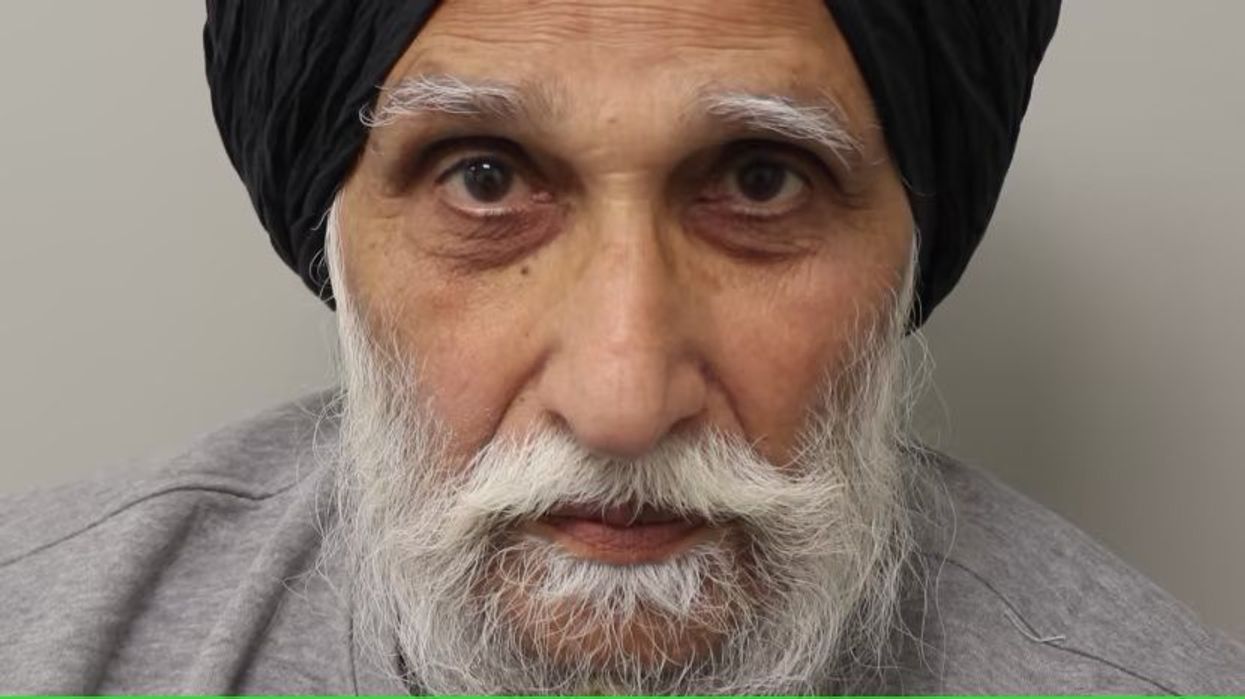A British Sikh retired postmaster has been jailed for at least 15 years for murdering his wife with a rounders bat.
Tarsame Singh, 79, was sentenced on last Wednesday (1) at Snaresbrook Crown Court after he pleaded guilty to killing his wife, Maya Devi, 77, in May.
The incident took place at their home address in Hornchurch, east London.
Abigail Husbands, the prosecutor, previously conveyed to the Old Bailey that the accused had mentioned suspecting his wife's involvement in an affair. Upon his return home around 4 pm, he believed another man had been present and assaulted her.
Authorities were on the scene within 14 minutes, discovering the victim lying unconscious in the living room. A wooden rounders bat was discovered close to her head, along with a wooden rolling pin nearby. Her body was found covered with a sheet stained with blood.
Singh walked into Romford police station in east London on May 2 and told the front desk he had just killed his wife.
Met Police officers immediately attended the house on Cowdray Way in Elm Park and found Maya Devi unresponsive on the living room floor. The wooden rounders bat was found nearby.
The police said “significant” amounts of blood staining were found on the carpet and nearby walls.
Maya Devi was pronounced dead at the scene and a post-mortem examination found the cause of death to be blunt force head injuries. She sustained extensive facial wounds, along with bruising on her hands and legs, and the loss of two teeth.
Singh was charged the next day and remanded into custody.
Detective Chief Inspector Mark Rogers, who led the investigation, said: “This is a tragic case and one which has left the couple’s three children utterly distraught.
“No-one should ever lose their mother in this way and we will continue to think of, and support them, at this difficult time.
“Singh has never admitted what caused him to act in such a violent way that evening but we are pleased he has pleaded guilty and will now face a significant custodial sentence.”
Maya Devi's close friend Nirmala Leal told MailOnline, "Maya was such a lovely lady, really warm-hearted. She loved singing as much as yoga and had a smile for everyone. I can't believe this has happened and that she has gone. I saw her just a few hours before her death, it doesn't seem real that I won't see her again."
According to reports, Devi frequented the Havering Asian Social and Welfare Association (HASWA) community centre near her residence, engaging in Yoga sessions and joining friends for lunch.
The couple hailed from India but had resided in the UK for over five decades. They operated a local post office in Rainham for many years. They have three children.





